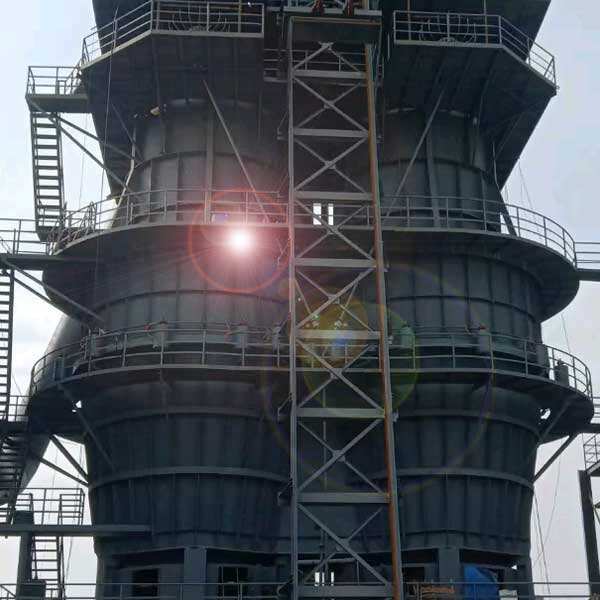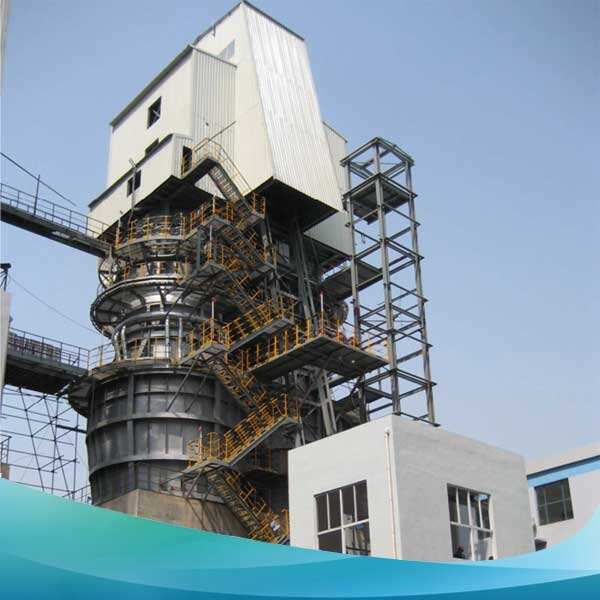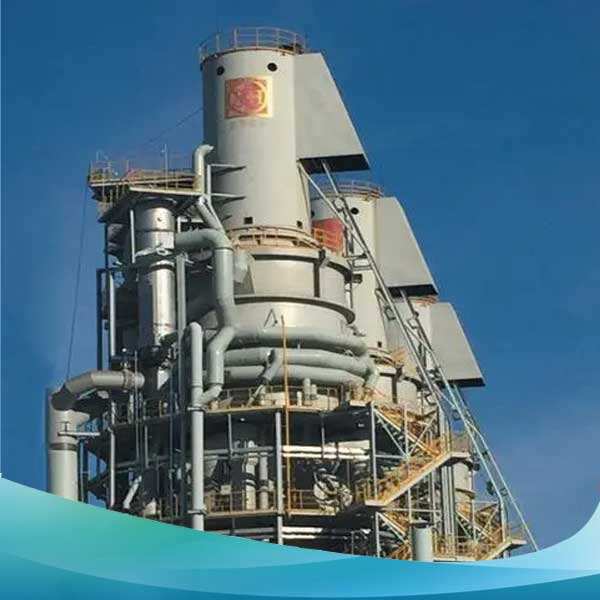Un horno rotatorio: proceso de fabricación de cemento En este artículo se analizará de forma práctica el proceso de fabricación del cemento y cómo se utilizan los hornos rotatorios para fabricarlo. El horno rotatorio es un gran equipo mecánico de toda la línea de producción y tiene un profundo impacto en varios campos industriales. Imagine hornos enormes y supercalientes que pueden hacer varias cosas increíblemente útiles. Mientras giran sobre su eje, estas máquinas cilíndricas utilizan sus movimientos para transformar materiales básicos en componentes complejos. Los hornos rotatorios industriales pueden realizar una gran cantidad de tareas, desde secar minerales hasta procesar enormes materiales de desecho, lo que los hace increíblemente diversos y útiles. Una de las distinciones más importantes entre los hornos rotatorios modernos y los modelos más antiguos es que pueden realizar cambios muy leves en su velocidad de rotación. Esto significa que, al utilizar variadores de velocidad, su horno combina la transferencia de calor y necesita la cantidad correcta de tiempo de procesamiento para que sus materiales terminen su tratamiento térmico. Además, los sistemas de enfriamiento de la carcasa pueden aliviar aún más el estrés térmico, lo que permite una vida útil más larga para su equipo, y los sistemas de combustión ultraeficientes con doble combustión pueden reducir las emisiones. Permite una mayor optimización de la eficiencia operativa a través de ajustes dinámicos mucho más precisos basados en sistemas de control avanzados con monitoreo en tiempo real y análisis de datos.
En la actualidad, los hornos rotatorios se han convertido en una de las herramientas esenciales que ayudan a las prácticas industriales y de fabricación sostenibles. En estos hornos se utilizan dispositivos de control de la contaminación modernos, como depuradores y filtros, para minimizar las emisiones nocivas. Además, los hornos rotatorios pueden funcionar con combustibles alternativos, como combustible derivado de residuos, lo que reduce la dependencia de los combustibles fósiles y proporciona un método de eliminación de residuos respetuoso con el medio ambiente. calcinación de cal El reciclaje de lo que podría clasificarse como calor residual, logrado mediante la reducción de la huella de carbono (probablemente la energía total), se vuelve más eficiente de manera proactiva para que algunos sistemas hayan restablecido su funcionalidad al menos parcialmente.
Los hornos rotatorios se utilizan en docenas de industrias debido a su versatilidad. Se utilizan de manera significativa en la mejora de las arterias desde tan solo 1.000 toneladas/hora hasta el uso de lechos fluidizados para áreas de recuperación de piedra. En la gestión de residuos, los incineradores se utilizan para el tratamiento y eliminación de residuos sólidos peligrosos, médicos y municipales, así como... Los hornos rotatorios se utilizan para llevar a cabo procesos como el preacondicionamiento de alimentos para animales, el secado de carbón activado y la oxidación de lodos de depuradora; también se utilizan para fundir varios componentes químicos en el procesamiento de metales. La flexibilidad de los hornos rotatorios es lo que hace necesario su uso para tantas aplicaciones con el fin de lograr los procesos deseados.
El control de la temperatura del material puede ser un aspecto clave para el funcionamiento del horno rotatorio, como bien sabrá al utilizar los controles de su secadora. La temperatura influye tanto en la velocidad de reacción química (procesamiento térmico) como en los cambios de propiedades físicas (secado). En el cemento, la calcinación y otros procesos, es esencial mantener las temperaturas para que los productos sean de mejor calidad. Pensalab cuenta con nuevas tecnologías en el perfilado térmico asociadas con la zonificación inteligente y la colocación de calentadores que ofrecen una distribución constante del calor en todo el alcance del horno. Dado que controla el suministro de combustible, el flujo de aire y la mayor parte del calentamiento, de esta manera no se desperdicia energía, como ocurre con algunas ofertas incorrectas, la temperatura es inferior a 0 o superior al máximo de, por ejemplo, el acero inoxidable, de modo que es posible que no se produzca ninguna degradación debido a las altas temperaturas.
Los hornos rotatorios diseñados a medida desempeñan un papel importante en el procesamiento correcto de los materiales. Todas estas soluciones se diseñan teniendo en cuenta las propiedades del material de alimentación y la capacidad de producción adecuada. Una de ellas ofrece una construcción modular para una fácil instalación y actualización, junto con la especificación correcta del equipo que garantiza resultados duraderos en las condiciones de proceso más duras. Tener la funcionalidad que ofrece un tipo de personalización casi con certeza vale la pena el costo de administración adicional porque no solo permite una mayor automatización, sino que también le permitirá ahorrar en costos de mantenimiento con tarifas de operación tan bajas, una ganancia innegable para lograr un ROI favorable.
Así, al final, queda demostrado que los hornos rotativos son los que satisfacen una serie de exigencias de la industria y de la protección del medio ambiente. Dado que pueden dar servicio a una amplia gama de aplicaciones industriales y a clientes que requieren control de temperatura caliente, junto con funciones de tratamiento de materiales que ofrecen un nivel de rendimiento sin concesiones, su valor se mantendrá durante mucho tiempo en la era de rápida evolución de la tecnología avanzada en la industria. A medida que las industrias avancen más hacia la sostenibilidad, los hornos rotatorios seguirán siendo la tecnología más avanzada para proporcionar un futuro más ecológico.
Al proporcionar valor a muchos métodos diferentes de operación y diseño, estos han "modernizado el corazón de cualquier horno rotatorio antiguo" en términos de su proceso o enfoque de producto. Unidades de velocidad variable: brindan un mayor control sobre la velocidad de rotación del tambor y tienen un ajuste fino que maximiza el tiempo de residencia de la transferencia de calor. Los sistemas de refrigeración en carcasa ayudan a reducir el estrés térmico y la vida útil del equipo. De manera similar, los hornos más nuevos tienen sistemas de combustión de última generación para un suministro óptimo de energía y pueden, entre cinco y ocho veces al año, cambiar su combinación de combustible principal para que las emisiones caigan en picado. El monitoreo en vivo en tiempo real con análisis de datos garantiza que se preste toda la atención a cada elemento de la configuración, bloqueando las operaciones para una gestión precisa del proceso y realizando ajustes tan pronto como las variables cambian, manteniendo las condiciones en su estado máximo.

En la naturaleza evolucionada del horno rotatorio en la vida contemporánea, no se busca tanto una cuestión de posibilidades sino más bien un cambio inevitable hacia la sostenibilidad que dio lugar a versiones de la misma. La emisión de partículas y gases nocivos de estas tecnologías se reduce significativamente al equipar los sistemas con modernos fabricación de cal Medidas de control de la contaminación como depuradores y filtros. Además, otra solución recurrente para reducir la dependencia de los combustibles fósiles es su capacidad de funcionar con combustibles alternativos, incluso aquellos que tienen residuos como materia prima, lo que lo convierte en una forma adecuada de tratar la basura. Se puede ahorrar más energía mediante sistemas de recuperación de calor que capturan el calor residual de un sistema y lo redirigen de nuevo al proceso, reduciendo así la huella de carbono general junto con un ahorro de energía.

Como se mencionó anteriormente, lo mejor de los hornos rotatorios es que se pueden utilizar en múltiples industrias y aplicaciones. Forman parte integral del proceso minero en un mercado minero de pequeña a gran escala. Los pasos de separación en el sitio cuentan como ejes de hierro esenciales. En el contexto de la gestión de residuos, se requieren para tratar de manera segura los residuos sólidos peligrosos (incineración/combustión), médicos (autoclave o microondas) y municipales. En la industria alimentaria y agrícola, un horno rotatorio de cal Pueden emplearse para procesar productos como piensos para animales o fertilizantes, mientras que el sector químico los utiliza para llevar a cabo diversas reacciones. La multitud de funciones que cumple el horno rotatorio lo convierte en un componente esencial en numerosas aplicaciones de procesamiento industrial.

El control del campo de temperatura en el horno rotatorio puede cumplir estos dos requisitos y está directamente relacionado con el cambio químico como resultado de las características físicas. El control de las variables del proceso también es crítico ya que las propiedades de temperatura base se logran durante la producción de la mayoría de productos como cemento, clinker y materiales calcinados. Se obtiene un flujo de calor constante de un extremo del horno a otro con zonificación y posicionamiento específicos de los elementos de partida utilizando perfiles térmicos detallados. utilizando tecnologías de última generación. En la cinta, hay un control automático de la temperatura con un bajo consumo de energía porque puede ocurrir un sobrecalentamiento durante el tratamiento y el suministro de combustible o el flujo de aire se proporciona mientras se ajusta en tiempo real (mediante un ventilador controlado por retroalimentación), así como el calentamiento directo de un calor opcionalmente indirecto para prevenir la degradación.
Más de 20 años, estamos comprometidos con el desarrollo, la investigación de la instalación del horno rotatorio del horno de cal. Es completamente automático con la inversión de menor costo. El horno de cal tiene una vida útil prolongada en la que podemos confiar debido al excelente servicio y al molino de cal de alta calidad.
La empresa se ha ocupado principalmente de la ingeniería de programas, el diseño, la instalación de equipos, la puesta en marcha de hornos y la producción de hornos hasta llegar a un horno de mina de cal ecológico y energéticamente eficiente. La empresa ha construido hornos activados de varios tamaños, incluidos 150 m3, 170 m3,200, 3,250 m3,350, 3,500 m3, XNUMX mXNUMX, XNUMX mXNUMX, etc. ¡Los hornos se abrieron con éxito y produjeron un efecto sorprendente! Utilizando la última tecnología del horno de cuba de cal de coque, el horno de cuba de cal de gas ha sido el horno rotatorio, y se han firmado contratos de diseño con numerosas empresas.
Durante mucho tiempo, AGICO ha contado con un equipo técnico profesional, una tecnología de producción madura y una rica experiencia en producción, formando un conjunto completo de sistemas de gestión de tecnología de producción de hornos de cuba, haciendo que la tecnología de horno rotatorio con eje de cal que ahorra energía y protege el medio ambiente sea perfecta. Esta tecnología tiene un bajo costo de inversión, alta calidad de automatización y calidad superior del producto. también un bajo consumo de energía y una vida útil prolongada del horno. Ha sido ampliamente utilizado en metalurgia, industrias químicas no ferrosas, metales, materiales de construcción, así como en otros sectores, como procesamiento profundo, etc.
AGICO es un equipo técnico altamente especializado en hornos rotativos, que se especializa en proyectos llave en mano de EPC, que incluyen fabricación, instalación de diseño, mantenimiento de depuración y otros servicios. Proporcionar un sistema integral de servicio preventa, posventa y posventa, brindando el soporte técnico necesario para cumplir con los requisitos de los clientes.